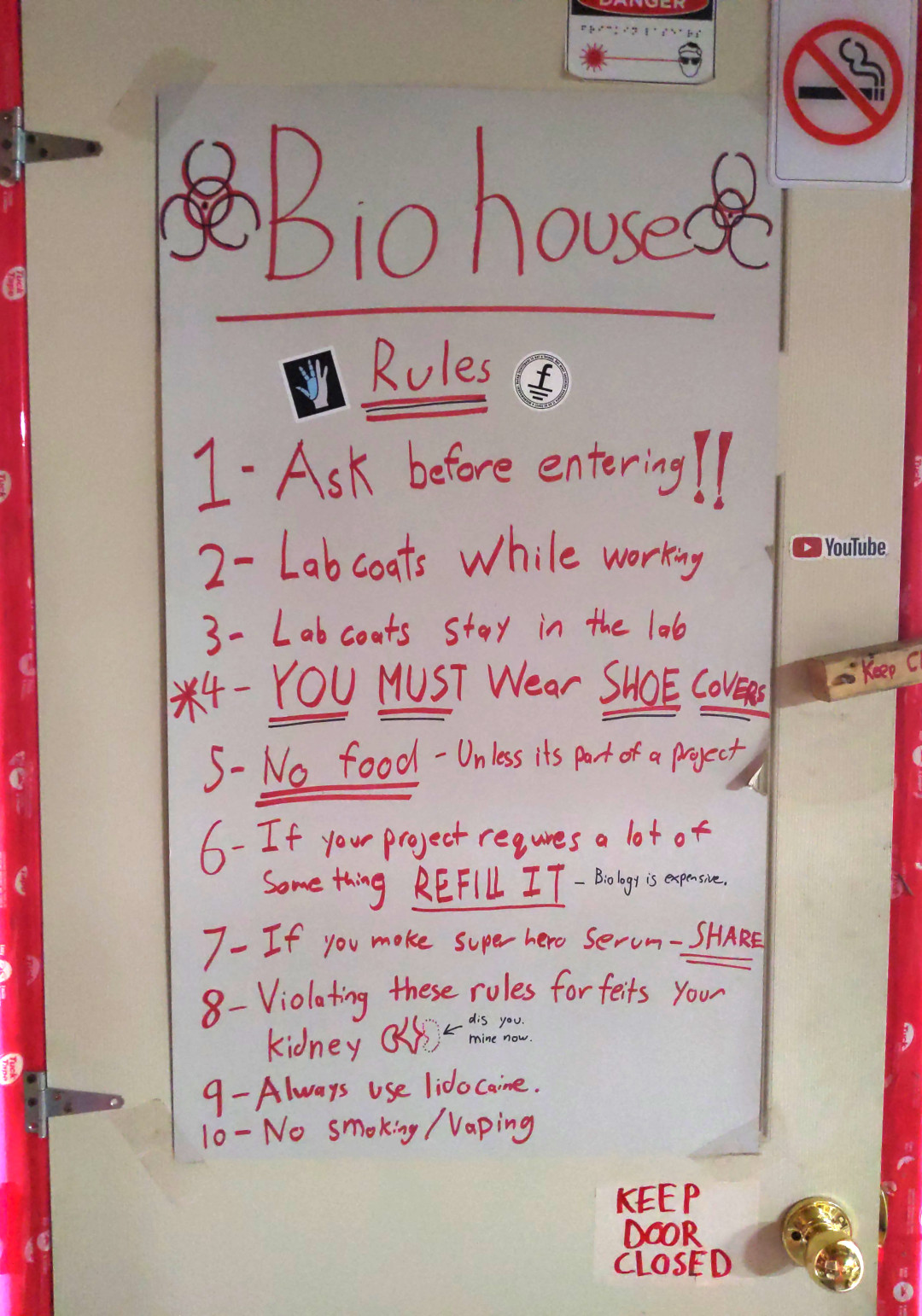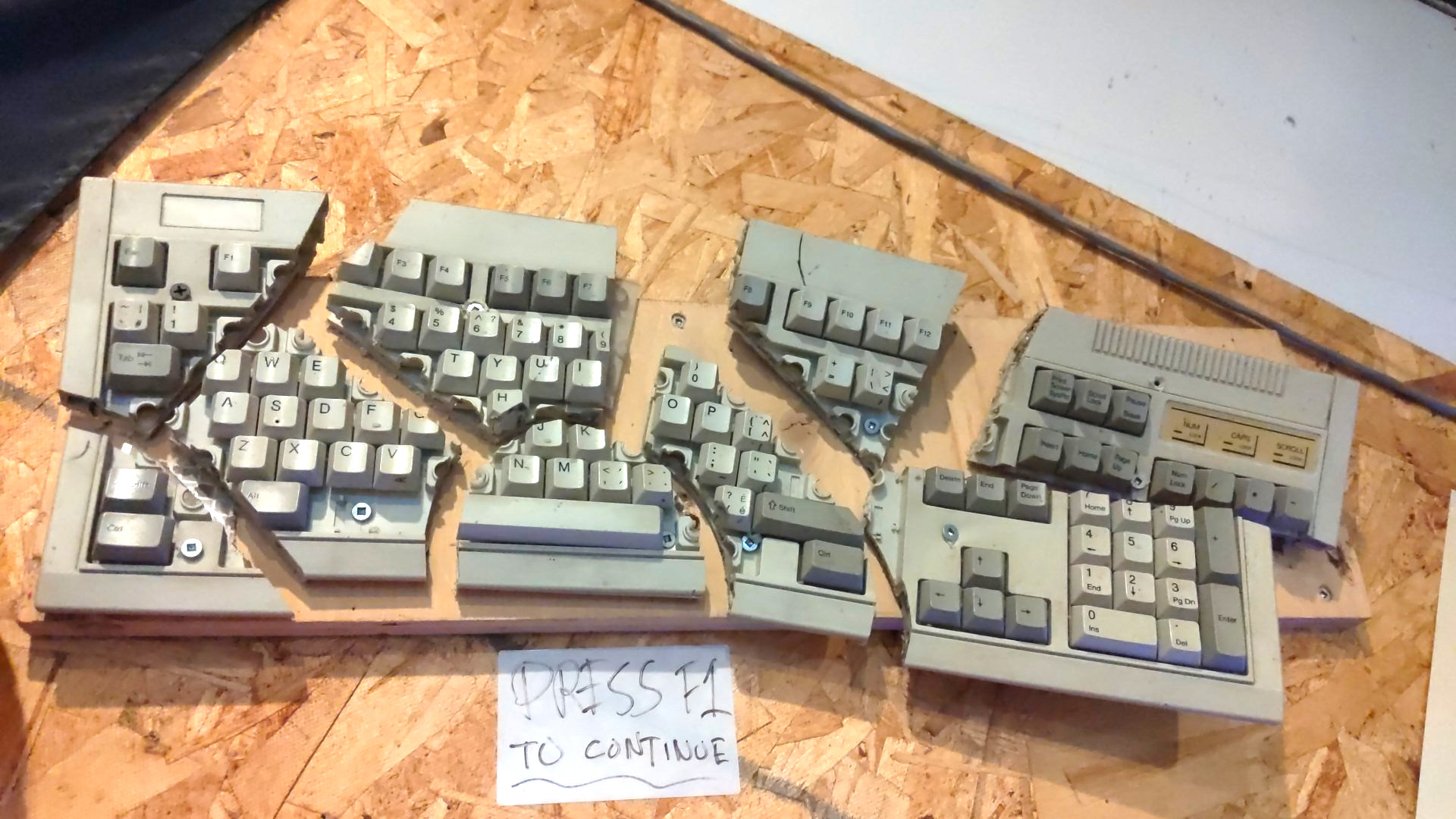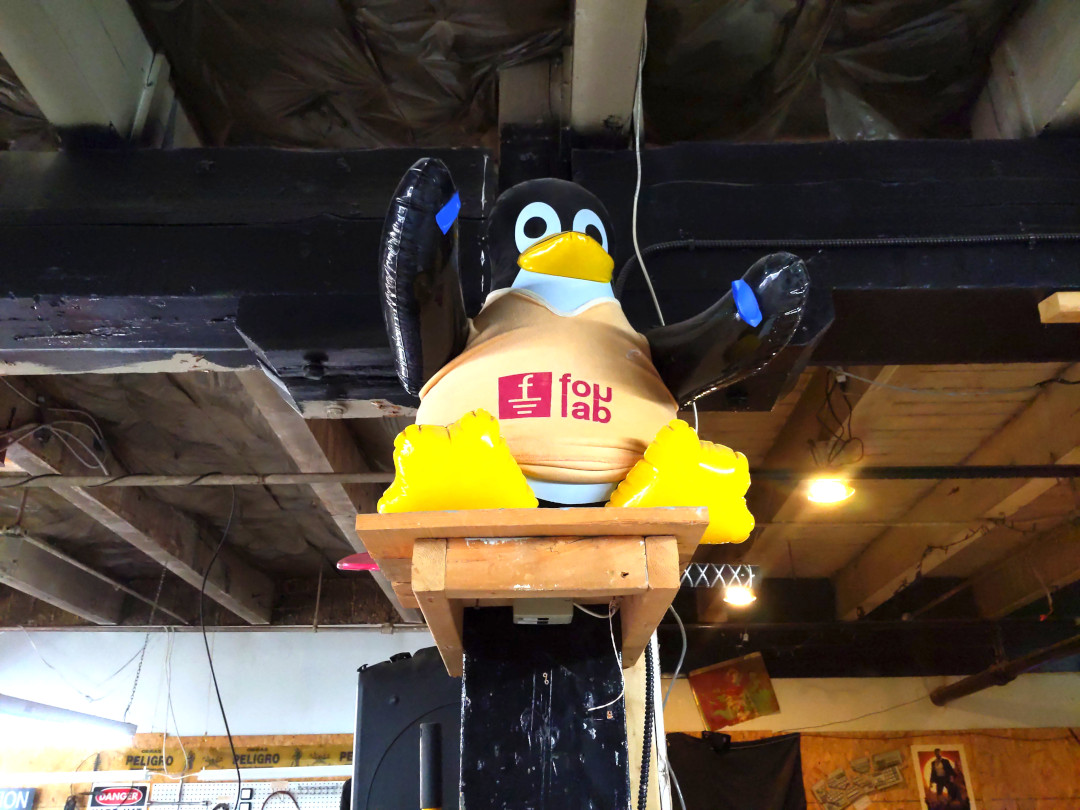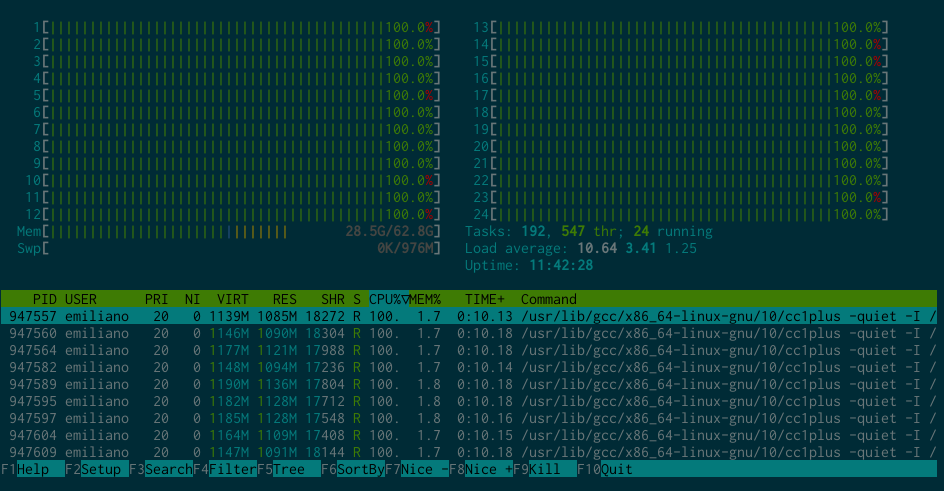
I have been a Puppet user for a couple of years now, first at work, and
eventually for my personal servers and computers. Although it can have a steep
learning curve, I find Puppet both nimble and very powerful. I also prefer it
to Ansible for its speed and the agent-server model it uses.
Sadly, Puppet Labs hasn't been the most supportive upstream and tends to move
pretty fast. Major versions rarely last for a whole Debian Stable release and
the upstream
.deb packages are full of vendored libraries.
Since 2017, Apollon Oikonomopoulos has been the one doing most of the work on
Puppet in Debian. Sadly, he's had less time for that lately and with Puppet 5
being deprecated in January 2021, Thomas Goirand, Utkarsh Gupta and I have been
trying to package Puppet 6 in Debian for the last 6 months.
With Puppet 6, the old ruby Puppet server using Passenger is not supported
anymore and has been replaced by
puppetserver, written in Clojure and running
on the JVM. That's quite a large change and although
puppetserver does reuse
some of the Clojure libraries
puppetdb (already in Debian) uses, packaging it
meant quite a lot of work.
Work in the Clojure team
As part of my efforts to package
puppetserver, I had the pleasure to join the
Clojure team and learn a lot about the Clojure ecosystem.
As I mentioned earlier, a lot of the Clojure dependencies needed for
puppetserver were already in the archive. Unfortunately, when Apollon
Oikonomopoulos packaged them, the
leiningen build tool hadn't been packaged
yet. This meant I had to rebuild a lot of packages, on top of packaging some
new ones.
Since then, thanks to the efforts of Elana Hashman,
leiningen has been
packaged and lets us run the upstream testsuites and create
.jar artifacts
closer to those upstream releases.
During my work on
puppetserver, I worked on the following packages:
List of packages
backport9bidi-clojureclj-digest-clojureclj-helperclj-time-clojureclj-yaml-clojurecljx-clojurecore-async-clojurecore-cache-clojurecore-match-clojurecpath-clojurecrypto-equality-clojurecrypto-random-clojuredata-csv-clojuredata-json-clojuredata-priority-map-clojurejava-classpath-clojurejnr-constantsjnr-enxiojrubyjruby-utils-clojurekitchensink-clojurelazymap-clojureliberator-clojureordered-clojurepathetic-clojurepotemkin-clojureprismatic-plumbing-clojureprismatic-schema-clojurepuppetlabs-http-client-clojurepuppetlabs-i18n-clojurepuppetlabs-ring-middleware-clojurepuppetserverraynes-fs-clojureriddley-clojurering-basic-authentication-clojurering-clojurering-codec-clojureshell-utils-clojuressl-utils-clojuretest-check-clojuretools-analyzer-clojuretools-analyzer-jvm-clojuretools-cli-clojuretools-reader-clojuretrapperkeeper-authorization-clojuretrapperkeeper-clojuretrapperkeeper-filesystem-watcher-clojuretrapperkeeper-metrics-clojuretrapperkeeper-scheduler-clojuretrapperkeeper-webserver-jetty9-clojureurl-clojureuseful-clojurewatchtower-clojure
If you want to learn more about packaging Clojure libraries and applications,
I rewrote the Debian Clojure
packaging tutorial and added a section
about the quirks of using
leiningen without a dedicated
dh_lein tool.
Work left to get puppetserver 6 in the archive
Unfortunately, I was not able to finish the
puppetserver 6 packaging work.
It is thus unlikely it will make it in Debian Bullseye. If the issues described
below are fixed, it would be possible to to package
puppetserver in
bullseye-backports though.
So what's left?
jruby
Although I tried my best (kudos to Utkarsh Gupta and Thomas Goirand for the
help),
jruby in Debian is still broken. It does build properly, but the
testsuite fails with multiple errors:
ruby-psych is broken (#959571)- there are some random java failures on a few tests (no clue why)
- tests ran by
raklelib/rspec.rake fail to run, maybe because the --pattern
command line option isn't compatible with our version of rake? Utkarsh seemed
to know why this happens.
jruby testsuite failures aside, I have not been able to use the
jruby.deb the
package currently builds in
jruby-utils-clojure (testsuite failure). I had the
same exact failure with the (more broken)
jruby version that is currently in
the archive, which leads me to think this is a
LOAD_PATH issue in
jruby-utils-clojure. More on that below.
To try to bypass these issues, I
tried to vendor jruby into
jruby-utils-clojure. At first I understood
vendoring meant including
upstream pre-built artifacts (
jruby-complete.jar) and shipping them directly.
After talking with people on the
#debian-mentors and
#debian-ftp IRC
channels, I now understand why this isn't a good idea (and why it's not
permitted in Debian). Many thanks to the people who were patient and kind enough
to discuss this with me and give me alternatives.
As far as I now understand it,
vendoring in Debian means "to have an embedded
copy of the source code in another package". Code shipped that way still needs
to be built from source. This means we need to build
jruby ourselves, one way
or another.
Vendoring jruby in another package thus isn't terribly helpful.
If fixing
jruby the proper way isn't possible, I would suggest trying to
build the package using embedded code copies of the external libraries
jruby
needs to build, instead of trying to use the Debian libraries.
This
should make it easier to replicate what upstream does and to have a final
.jar that can be used.
jruby-utils-clojure
This package is a first-level dependency for
puppetserver and is the glue
between
jruby and
puppetserver.
It builds fine, but the testsuite fails when using the Debian
jruby package. I
think the problem is caused by a
jruby LOAD_PATH issue.
The Debian
jruby package plays with the
LOAD_PATH a little to try use
Debian packages instead of downloading gems from the web, as upstream
jruby
does. This seems to clash with the
gem-home,
gem-path, and
jruby-load-path variables in the
jruby-utils-clojure package. The testsuite
plays around with these variables and some Ruby libraries can't be found.
I tried to fix this, but failed. Using the upstream
jruby-complete.jar instead
of the Debian
jruby package, the testsuite passes fine.
This package could clearly be uploaded to NEW right now by ignoring the
testsuite failures (we're just packaging static
.clj source files in the
proper location in a
.jar).
puppetserver
jruby issues aside, packaging puppetserver itself is 80% done. Using the
upstream
jruby-complete.jar artifact, the testsuite fails with a weird
Clojure error I'm not sure I understand, but I haven't debugged it for very
long.
Upstream uses git submodules to vendor puppet (agent), hiera (3), facter and
puppet-resource-api for the testsuite to run properly. I haven't touched that,
but I believe we can either:
- link to the Debian packages
- fix the Debian packages if they don't include the right files (maybe in a new
binary package that just ships part of the source code?)
Without the testsuite actually running, it's hard to know what files are needed
in those packages.
What now
Puppet 5 is now deprecated.
If you or your organisation cares about Puppet in Debian,
puppetserver
really isn't far away from making it in the archive.
Very talented Debian Developers are always eager to work on these issues and
can be contracted for very reasonable rates. If you're interested in
contracting someone to help iron out the last issues, don't hesitate to reach
out via one of the following:
As for I, I'm happy to say I got a new contract and will go back to teaching
Economics for the Winter 2021 session. I might help out with some general Debian
packaging work from time to time, but it'll be as a hobby instead of a job.
Thanks
The work I did during the last 6 weeks would be not have been possible without
the support of the Wikimedia Foundation, who were gracious enough to contract
me. My particular thanks to Faidon Liambotis, Moritz M hlenhoff and John Bond.
Many, many thanks to Rob Browning, Thomas Goirand, Elana Hashman, Utkarsh Gupta
and Apollon Oikonomopoulos for their direct and indirect help, without which
all of this wouldn't have been possible.
 Hello from a snowy Montr al! My life has been pretty busy lately1 so
please forgive this late report.
On November 19th, our local Debian User Group met at Montreal's most
prominent hackerspace, Foulab. We've been there a few times already, but
since our last visit, Foulab has had some membership/financial troubles. Happy
to say things are going well again and a new team has taken over the space.
This meetup wasn't the most productive day for me (something about being
exhausted apparently makes it hard to concentrate), but other people did a
bunch of interesting stuff :)
Hello from a snowy Montr al! My life has been pretty busy lately1 so
please forgive this late report.
On November 19th, our local Debian User Group met at Montreal's most
prominent hackerspace, Foulab. We've been there a few times already, but
since our last visit, Foulab has had some membership/financial troubles. Happy
to say things are going well again and a new team has taken over the space.
This meetup wasn't the most productive day for me (something about being
exhausted apparently makes it hard to concentrate), but other people did a
bunch of interesting stuff :)





 The following contributors got their Debian Developer accounts in the last two months:
The following contributors got their Debian Developer accounts in the last two months:
 This was our 4th meeting this year and once again, attendance was great: 10
people showed up to work on various things.
Following our bi-monthly schedule, our next meeting should be in December, but
I'm not sure it'll happen. December can be a busy month here and I will have to
poke our mailing list to see if people have the spoons for an event.
This time around, I was able to get a rough log of the Debian work people did:
pollo:
This was our 4th meeting this year and once again, attendance was great: 10
people showed up to work on various things.
Following our bi-monthly schedule, our next meeting should be in December, but
I'm not sure it'll happen. December can be a busy month here and I will have to
poke our mailing list to see if people have the spoons for an event.
This time around, I was able to get a rough log of the Debian work people did:
pollo:





 Here is my monthly update covering what I have been doing in the free and open source software world during July 2020 (
Here is my monthly update covering what I have been doing in the free and open source software world during July 2020 (
 Because
Because  Welcome to gambaru.de. Here is my monthly report that covers what I have been doing for Debian. If you re interested in Android, Java, Games and LTS topics, this might be interesting for you.
Debian Android
Welcome to gambaru.de. Here is my monthly report that covers what I have been doing for Debian. If you re interested in Android, Java, Games and LTS topics, this might be interesting for you.
Debian Android
 Jessie was released one year ago now and the Java Team has been busy preparing
the next release. Here is a quick summary of the current state of the Java packages:
Jessie was released one year ago now and the Java Team has been busy preparing
the next release. Here is a quick summary of the current state of the Java packages:
 What happened about the
What happened about the  I'm getting the hang of the more or less daily RC bug fixing again. below
you find what I did this week.
as a side note: as you can see, quite a few of the patches are taken from
ubuntu; it's great that someone over there already took the time to come up
with a fix; thanks! not so great is that only one of them was in the
BTS. guys, you have already been better at forwarding your patches to the
debian BTS, please try to get back into this good habit :)
I'm getting the hang of the more or less daily RC bug fixing again. below
you find what I did this week.
as a side note: as you can see, quite a few of the patches are taken from
ubuntu; it's great that someone over there already took the time to come up
with a fix; thanks! not so great is that only one of them was in the
BTS. guys, you have already been better at forwarding your patches to the
debian BTS, please try to get back into this good habit :)
 For
For  I have finally reached a decision regarding my involvement in the Debian Ruby packaging efforts. I have decided to stop. This has been a very hard decision to make. I have invested huge amounts of time in that work over the years. I still love the language, and will continue to use it on a daily basis for my own developments. I still hope that it will succeed. I know that some people will be disappointed by that decision (and that others will think your work was useless anyway, people should use RVM and rubygems ).
But I also know that I won t be able to push for all the required changes alone. I just don t have the time, nor the motivation. For the record, here are the changes I would have liked to see in the Ruby community.
The core Ruby development community should mature.
I have finally reached a decision regarding my involvement in the Debian Ruby packaging efforts. I have decided to stop. This has been a very hard decision to make. I have invested huge amounts of time in that work over the years. I still love the language, and will continue to use it on a daily basis for my own developments. I still hope that it will succeed. I know that some people will be disappointed by that decision (and that others will think your work was useless anyway, people should use RVM and rubygems ).
But I also know that I won t be able to push for all the required changes alone. I just don t have the time, nor the motivation. For the record, here are the changes I would have liked to see in the Ruby community.
The core Ruby development community should mature.